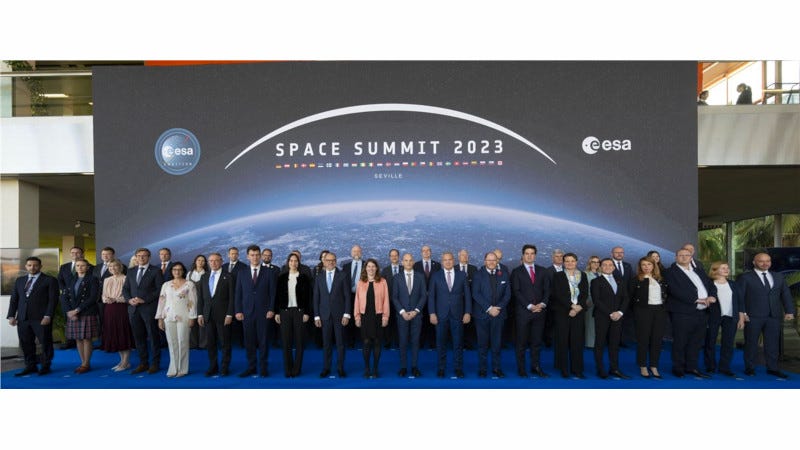Ministers Back Europe's Sustainable and Competitive Space Ambitions
Europe Will Harness Space for a Greener Future
Government ministers representing ESA’s Member States, Associate States and Cooperating States resolved together to strengthen Europe’s space ambitions to better serve European citizens.
Space policy is climate policy, industrial policy and security policy."
Josef Aschbacher, ESA
Meanwhile ESA is modernizing how it runs its programs, speeding up its procu…




